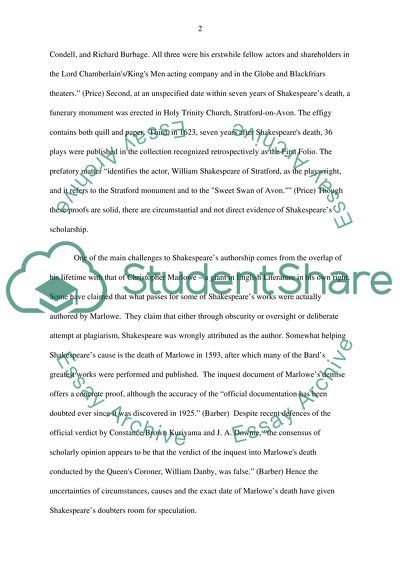Cite this document
(“SHAKESPEARE: A Question of Authorship Research Paper”, n.d.)
Retrieved de https://studentshare.org/english/1497002-shakespeare-a-question-of-authorship
Retrieved de https://studentshare.org/english/1497002-shakespeare-a-question-of-authorship
(SHAKESPEARE: A Question of Authorship Research Paper)
https://studentshare.org/english/1497002-shakespeare-a-question-of-authorship.
https://studentshare.org/english/1497002-shakespeare-a-question-of-authorship.
“SHAKESPEARE: A Question of Authorship Research Paper”, n.d. https://studentshare.org/english/1497002-shakespeare-a-question-of-authorship.


